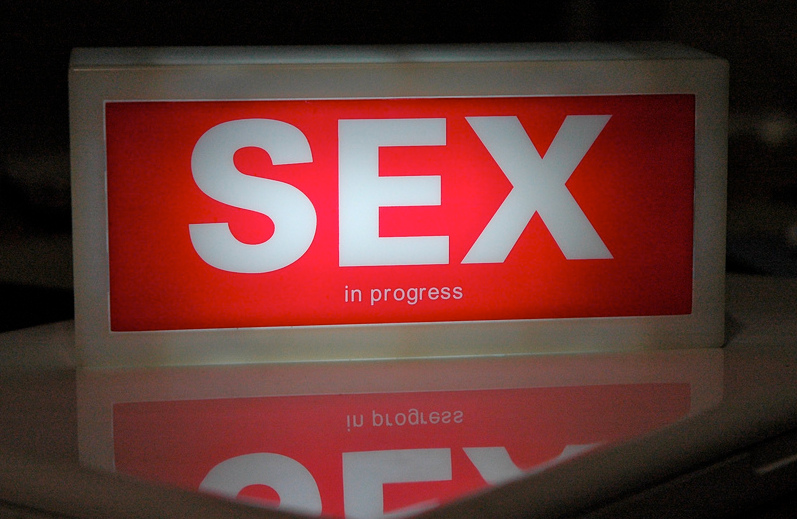Each week this summer, I’ve been posting short essays on sexual thinkers who have changed my perspective on sex, and who, I believe, could be instrumental in helping us remake Western sexual culture. All the figures were dead except one, Amber Hollibaugh, who I included because, in my life, she’s tied to the other thinker featured in that post, Edward Carpenter, in a way that I felt made both more illuminating.
The task at hand after the series was finished was to cap it off with a review of the sex radicals of today. I thought it would be easy. Instead, I found myself searching without much success and wandering around in a sort of cultural pessimism.
It’s not that there’s a shortage of people doing amazing sexual thinking. I know dozens of people who are doing essential and powerful work around sex. I list some of them here in hopes that you will find and engage with their efforts.
Sex and law scholar Eric Berkowitz
Trauma and abuse researcher Susan Clancy
Middle East cultural critic and feminist rebel Mona Eltahawy
Sex work journalist Melissa Gira Grant
Critical theorist Roger Lancaster
Writer and researcher into childhood sexuality Judith Levine
Dispeller of sex and porn addiction myths David Ley
Cultural documentarian and sex worker advocate Maggie McNeill
Sex-in-evolution thinker Christopher Ryan
Happily, there are deeply interdisciplinary thinkers that write and speak about sex:
The founder of the Center for Sex and Culture Carol Queen, for example
Science fiction writer and academic Samuel Delaney
Sex therapist and author Chris Donaghue
http://www.chrisdonaghue.com/
This isn’t a slight to any of the luminaries I’ve mentioned. Rather, it’s a report on the state of the world, which has seemingly moved on from a renaissance of interdisciplinary thinking. Instead, thinkers tend to find a niche and gather information, to become experts. This is, in some ways, a positive development. After all, the sweeping generalizations of the modern era led to (and continue to lead) to colonialist wars, racism, classism, and more.
But the drive to discover the entire world in yourself, and to discover yourself spread out across the world your very being located everywhere, that does bring us something potent and radical.
Perhaps more to the point, that the current cultural impulse demands we sequester our work and not allow the free flow of other disciplines into our own is decidedly un-sexual.
My mentor, biologist Lynn Margulis, was an interdisciplinary radical if ever there was one. She knew geology, chemistry, microbioogy, botany. She could recite Emily Dickinson poems by heart, and at the end of her life published a book of fiction. She went to school for philosophy and helped create the field of biogeochemistry, which studies how living beings interact with non-living beings in profound discursive loops.
“The people down the hall from my lab,” she told me, “have no idea what I’m doing. And the people down the hall from them have no idea what they’re doing, and so on. How is anyone supposed to know what ‘science’ is if scientists don’t talk to each other?” That was in a single University of Massachusetts building. Now what about that building and the humanities building? And other campuses? And people who don’t go to college or teach at a college and those that do? The world is hopelessly fragmented and continues to harden into fine intractable points of view. We don’t have disciplines any more so much as we do shards of thought. We can’t help but harm ourselves with their edges, still jagged from when they were broken off from the whole.
Happily, there are deeply interdisciplinary thinkers that write and speak about sex. The founder of the Center for Sex and Culture Carol Queen, for example. Science fiction writer and academic Samuel Delaney. Sex therapist and author Chris Donaghue.
I don’t mean these intellectuals are “better,” simply that they are doing the work of introducing disciplines and perspectives to other disciplines and perspectives. They are bridges for disparate ways of thought. These sorts of bridges are desperately needed.
And we need to do more than that, even. We need to focus our efforts on more than just sex. Sex is the teacher, and its lesson is not merely itself.
I’m guilty myself of every charge here, of course. I’m guilty of limiting my scope and vision and action, and I’d like to do better.
A world that embraces true sexual freedom will need to be pluralistic, because sexuality is individual. Unfortunately what our culture embraces, sexually, is pluralism’s opposite.
Fundamentalism is the default attitude of our culture when it comes to sex.
It’s an attitude composed of a psychotic certainty about what is sexually moral. People and institutions in power may have set the stage for these fundamentalist attitudes, but everyone perpetuates them. Whenever you slut-shame someone, whenever I reactively flinch at a friend’s sexual preference, whenever we unthinkingly let a sexual taboo go unchallenged, even if we are sex positive, we reinforce sexual fundamentalism. The best way to combat fundamentalism is to cultivate in thinking, feeling and action, a true plurality. Sexually, you may engage with people you might not normally find attractive, try a new sexual act, question your patterns and boundaries. But let’s move beyond sex here to get truly sexual. We can read and investigate topics outside of our interests, allow ourselves to be uncomfortable. Pull a book at random off the shelf at the library, force yourself through it, whatever it is. We can speak to people outside our group, however we might define it. Start a conversation with a stranger, and watch your thinking as you proceed. Finally, we can believe in and hold lightly concepts that are counterintuitive to see how they feel. Allow love for your enemies, whether they’re people or ideas.
When we view the world pluralistically, when we see many disciplines, the image of the leader dissipates and is replaced with and image of partners.
When Lacan observed the revolution in France in 1968, he said “What you aspire to as revolutionaries is a master.” He knew that what usually happens is that people replace one assembled invisible worldview with another. There’s no desire in that.
So how can we change the landscape of sex without seeking new masters?
I’m not sure, but my best shot is this:
Let sex teach you. Be its student. Then look to yourself, the world is there.
Image by Jean KOULEV, courtesy of Creative Commons license.













